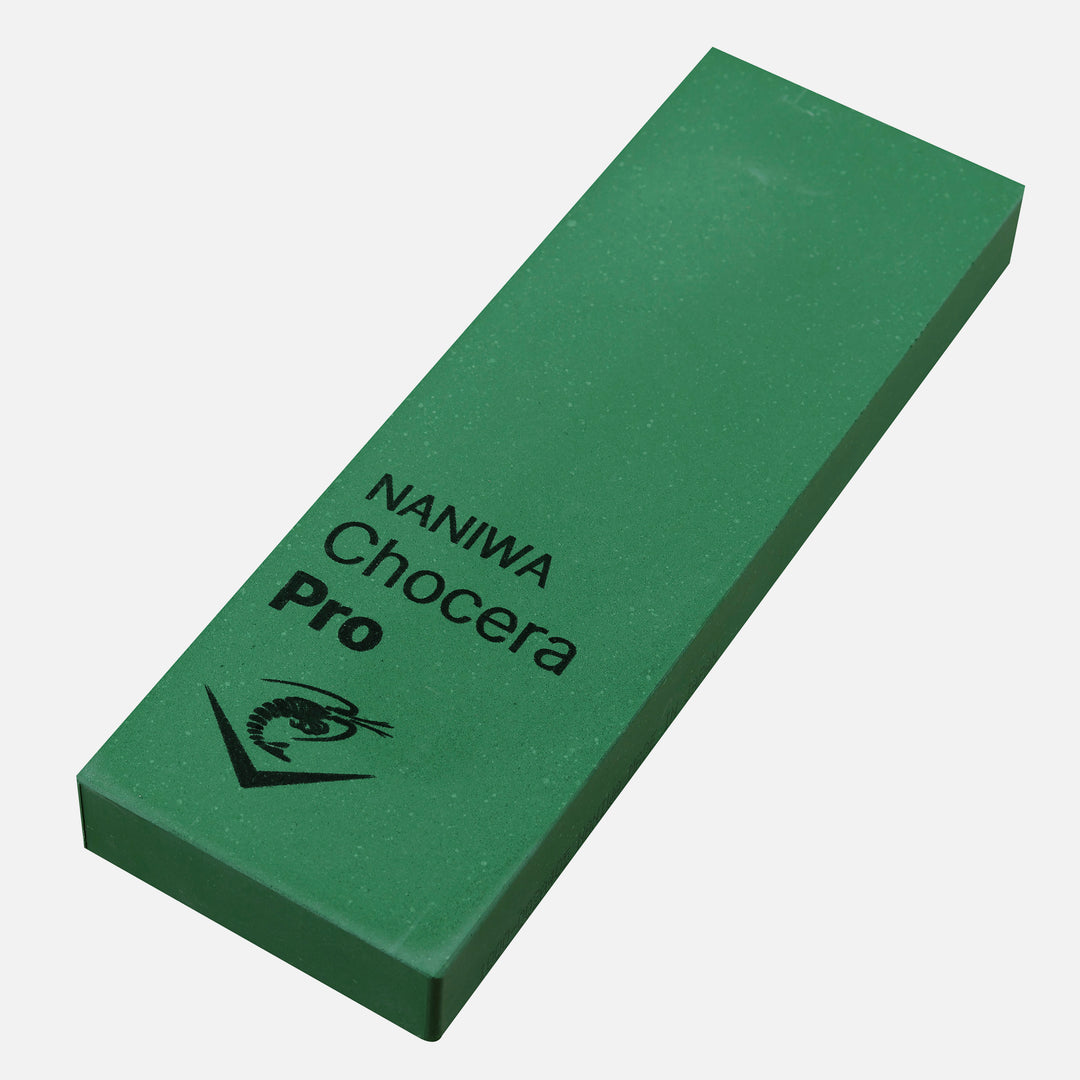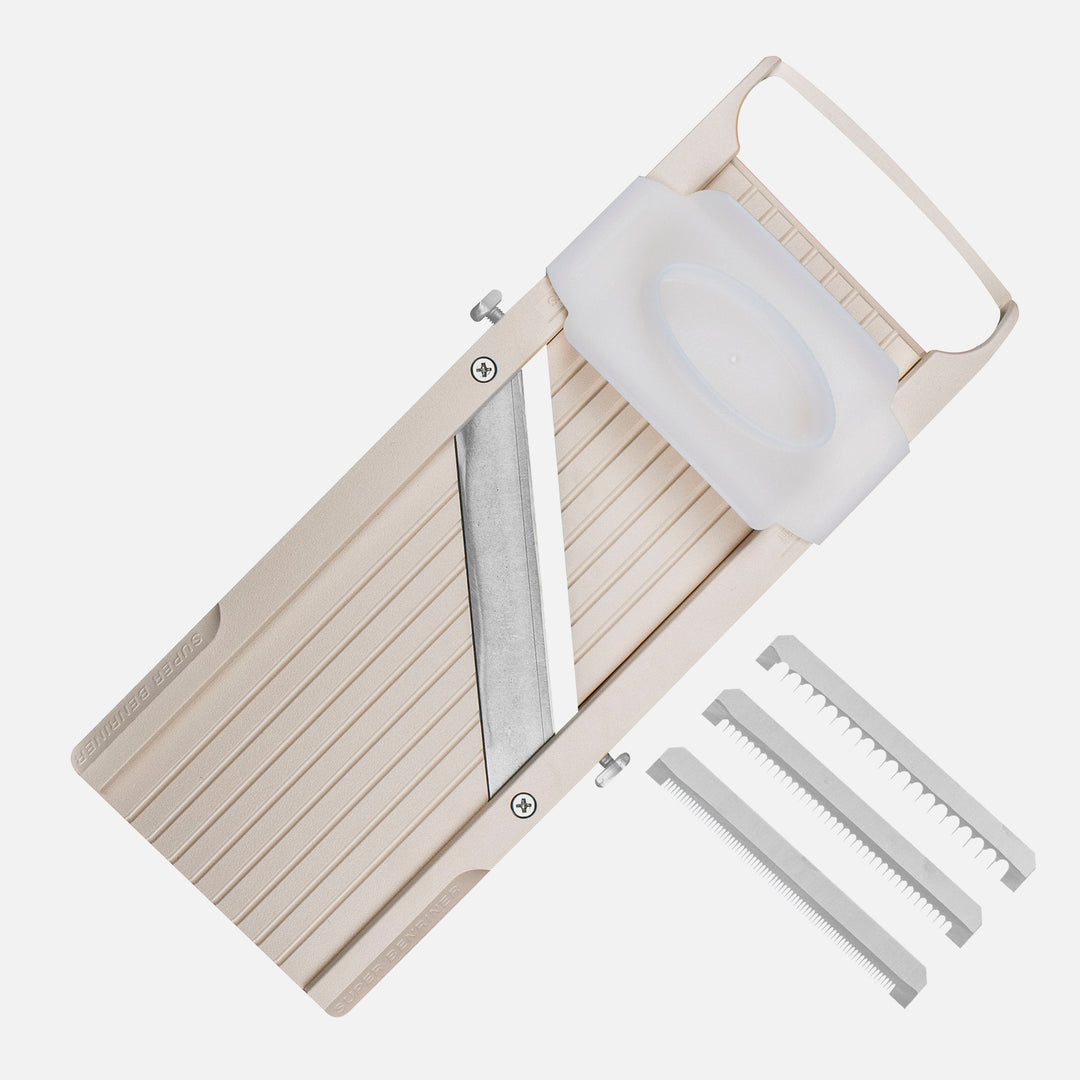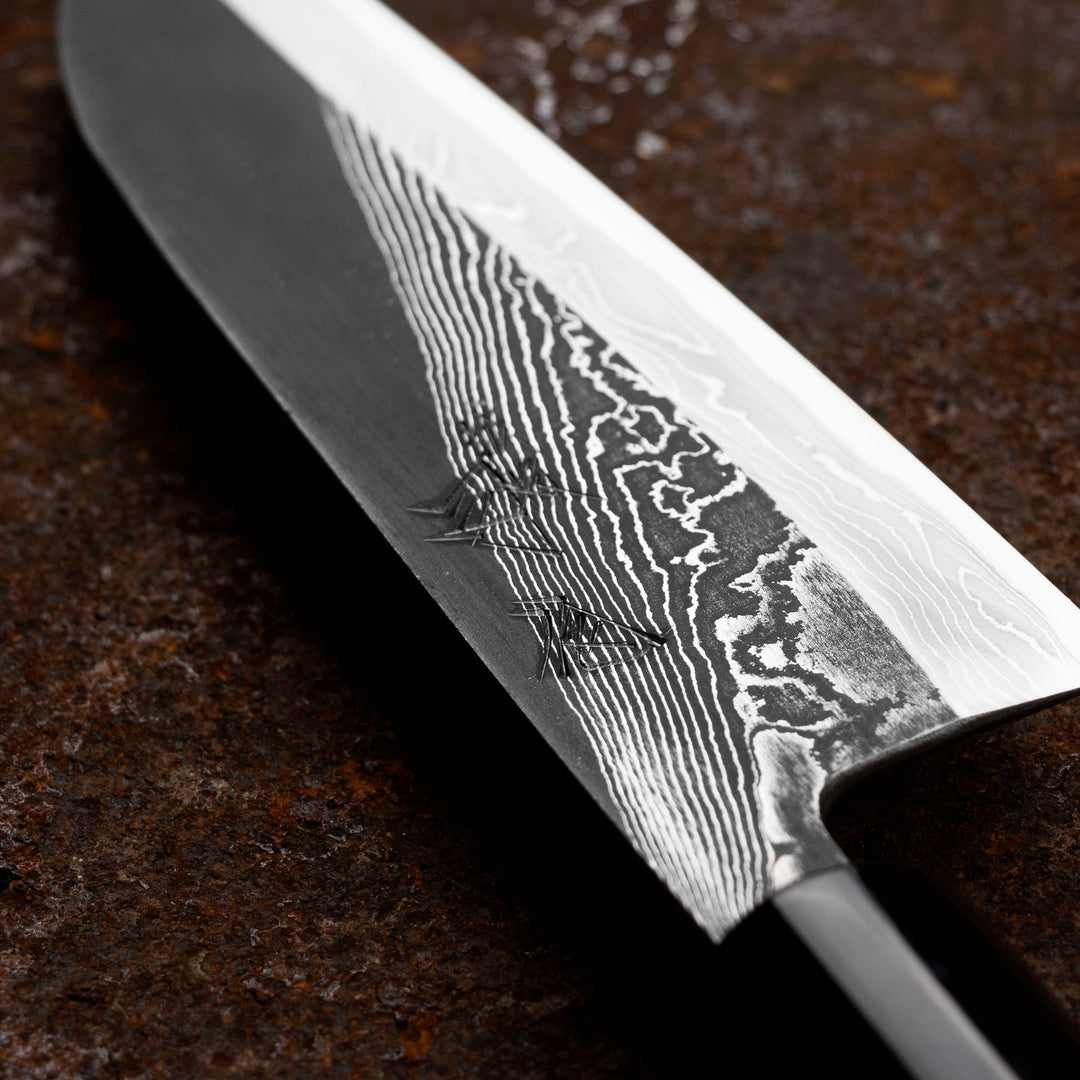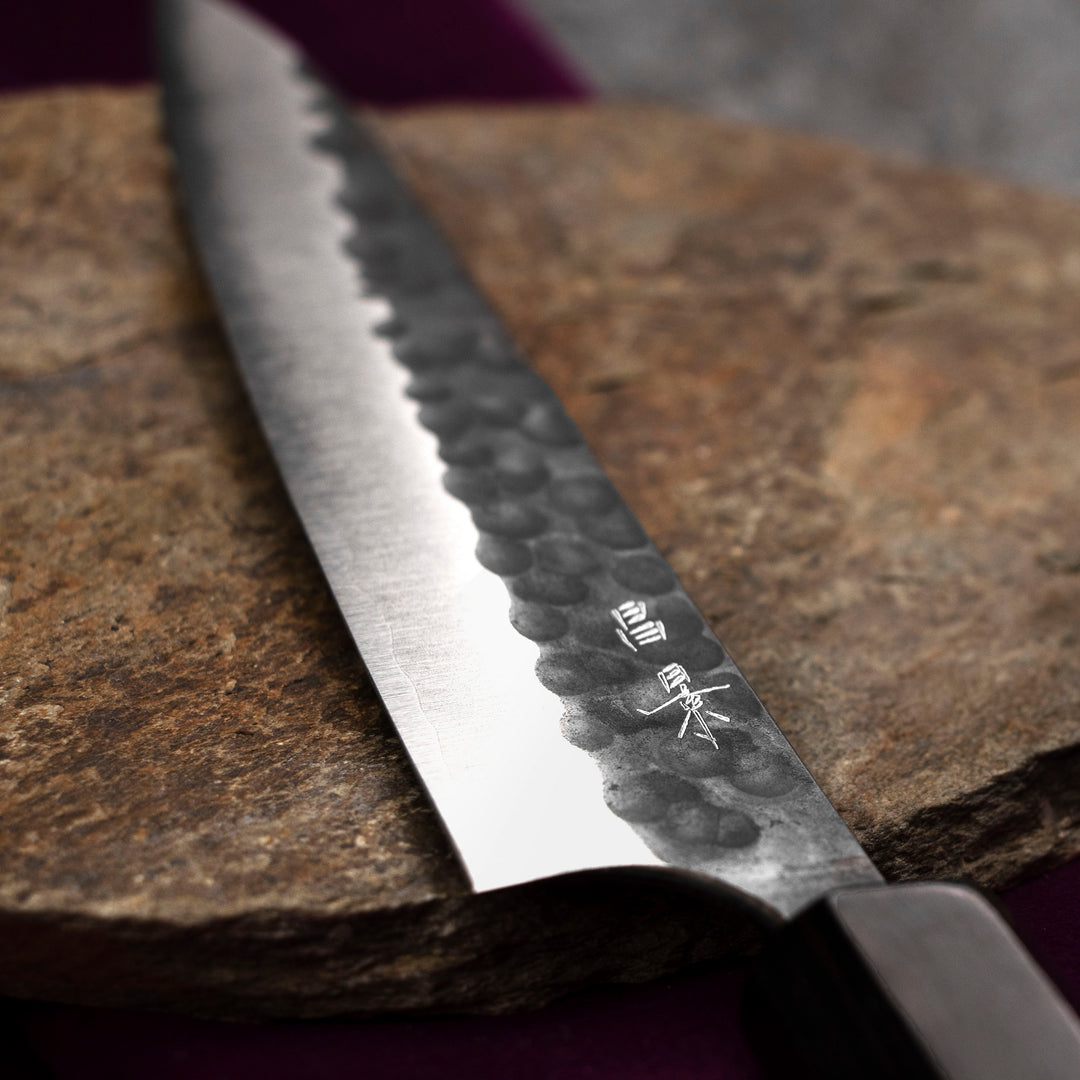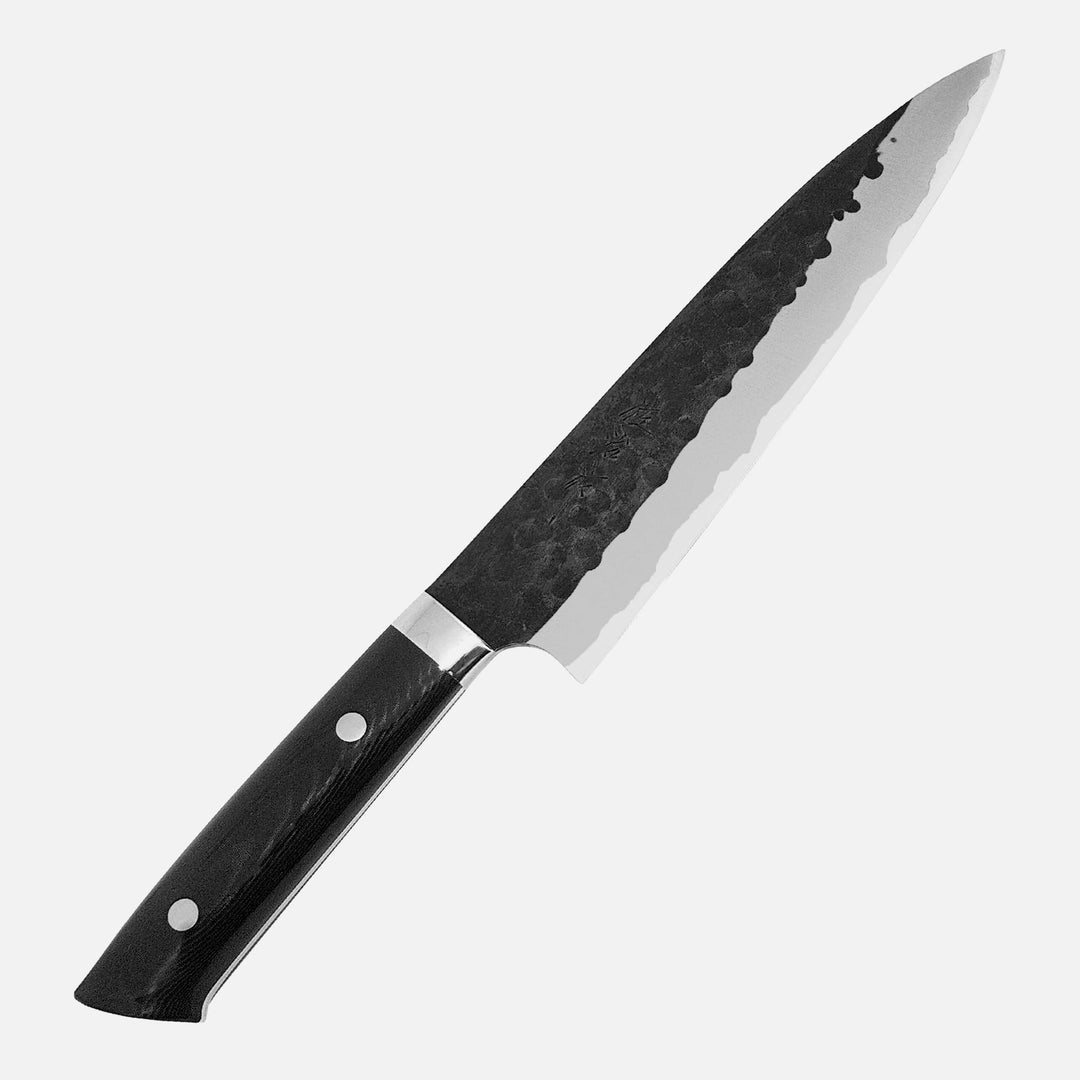
Gyuto 21 cm Takeshi Saji Aogami Super/SS
HG-3308
- Certyfikat Made in Japan
- Masz pytanie? Zadzwoń: 538 438 353
- W magazynie gotowy do wysyłki! Wysyłka jutro, dostawa w czwartek
- Blade Steel Type: Carbon Steel Aogami Super (Core) enveloped by stainless steel
- Handle: Micarta
- Hardness Rockwell (HRC): 63-65
- Total length: 33,5 cm
- Blade length: 21,0 cm
- Blade width: 4,7 cm
- Spine thickness: 2,1 mm
- Weight: 210 g
- Carbon: 1,40 – 1,50%
- Tungsten: 2,00 – 2,50%
- Vanadium: 0,30 – 0,50%
- Chromium: 0,30 – 0,50%
- Molybdenum: 0,30 – 0,50%
- Manganese: 0,20 -0. 30%
- Silicon: 0,10 – 0,20%
- Phosphorus: 0,025%
- Sulfur: 0,004%
Made in Japan

KNIFE CARE
Carbon steel requires much more care than stainless steels. The basic principle of the maintenance of carbon steel knives is to wipe them dry, leaving a dirty knife even for a moment will quickly cover it with a patina. After wiping the knife dry, it is best to lubricate it with a small amount of camellia oil, which will additionally protect the blade. Leaving a wet knife to dry on its own will result in the appearance of small spots of rust. It is completely unacceptable to wash the knives in a dishwasher, chemicals and high temperature will negatively affect the handle and the blade, it can also lead to permanent damage to the knife. The knife is used only for cutting soft, boned and non-frozen products. If the blade comes into contact with the bone, it can chip. When cutting, do not twist the knife from side to side, as it may break the tip if the knife is jammed in the product. The wood and plastic boards recommended by us, cutting on glass or stone boards is prohibited, it will lead to an accelerated process of blunting the knife and possible nicks. The knife should only be used as a cutting tool, the thin, sharp design perfectly cuts the products, but when you try to open the jars, the blade may chip.
STEEL
Aogami Super
Composition:
Another steel produced by the Hitachi Steelworks, by casting, for knives and tools. It is usually hardened to 63-65 HRC. Due to the increased content of carbon, tungsten and the addition of other carbide-forming elements and (which also improve hardenability), such as vanadium and molybdenum, it achieves a hardness greater than Aogami 2. Similarly to the above steel, it is classified as the highest purity steel. It is often referred to as "carbon steel with an ideal composition for the production of knives." Japanese makers using this steel include TakeshiSaji, Moritaka and Takeda. Thanks to the precisely designed chemical composition, this steel holds the sharpest and the longest of all Aogami steels, at the same time it is easy to sharpen, with high abrasion resistance in everyday use. As for the cut, its extreme sharpness makes it silky smooth. Due to the low resistance to rusting and damage in the form of chipping (due to incredible hardness), this steel often serves as the core in laminated knives. It is then used with amphibians made of softer steel, often stainless, thus eliminating both of its shortcomings.


